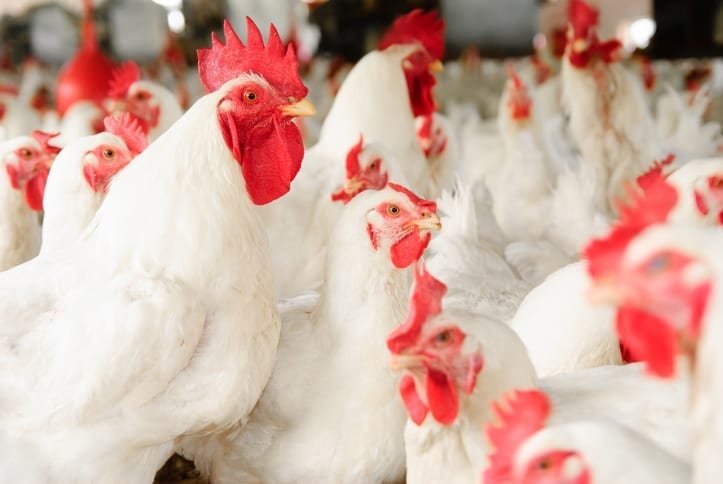British consumers who are swapping red meat for chicken and other poultry may be contributing unwittingly to the destruction of South American forests.
This is because of ‘a total failure by high street brands’ to monitor where animal feed comes from, a new Greenpeace report warns.
Chicken sales booming
While more and more shoppers choose to avoid beef and pork on health, animal welfare and environmental grounds, consumption of chicken is booming.
Over the past 20 years, overall demand for beef, lamb and pork has fallen sharply, but this drop has been offset by a 20% increase in the consumption of chicken.
UK supermarkets and fast food chains are boosting demand for chicken by ramping up promotional offers.
The Greenpeace report, ‘Winging it: How the UK’s chicken habit is fuelling the climate & nature emergency’, reveals that far from being an environmentally friendly option, a lot of the chicken sold in the UK is contributing to the destruction of wildlife-rich forests in South America.
UK kills 1bn chickens per year
The UK imports over three million tonnes of soya every year from Argentina, Brazil and Paraguay to feed factory-farmed animals – primarily chickens.
Over one billion chickens are slaughtered in the UK every year, 95% of which are intensively farmed, a model of production that relies on industrial feed containing soya.
Meeting Britain’s annual demand for soya requires 1.4 million hectares of land – an area larger than Northern Ireland – and vast swathes of forest and wildlife-rich savannah in South America are being destroyed to grow the crop.
Soya for meat
Greenpeace surveyed 23 UK leading food brands about their chicken sales and soya usage, including supermarkets, fast food outlets and other quickserve restaurants.
The charity found that leading supermarkets are buying their soya from commodity giants like Archer Daniels Midland (ADM), Bunge and Cargill, all of which have been involved in the destruction of forests or other habitats in the Brazilian Cerrado, the world’s most wildlife-rich savannah.
None of the companies surveyed could guarantee the soya they use for meat production was deforestation-free. Some, like McDonald’s, KFC, Burger King, Nando’s and Subway, refused to disclose their meat sales or soya use all together.
 Play Video about This Rock Might Just Save The World
Play Video about This Rock Might Just Save The World Play Video about Play 2 hours of rock
Play Video about Play 2 hours of rock Play Video about Play 2 hours of brook
Play Video about Play 2 hours of brook Play Video about Play 2 hours of sheep
Play Video about Play 2 hours of sheep











































